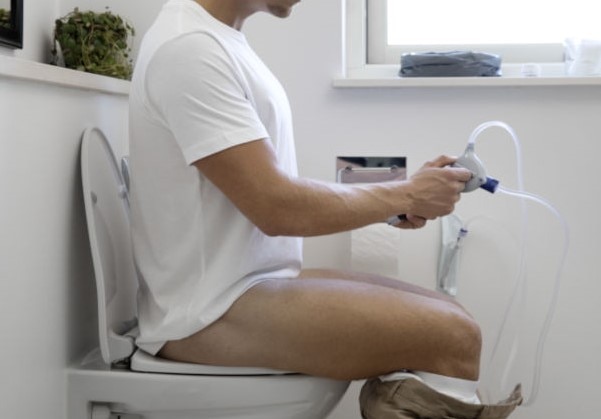Possible adjustments to your TAI routine
You need to give your body time to adjust to TAI in the beginning, so you should not change your routine within the first weeks of starting. With some time, it may be possible to adjust your transanal irrigation routine to better fit your needs or improve the results of your irrigations. After establishing your routine, only make changes after consulting your healthcare provider.
Adjustments you can make
As with many things, there is no one-size-fits-all solution, and sometimes adjustments are needed. When doing transanal irrigations, you may feel it becomes necessary to adjust:
- The time of day you complete irrigations
- The frequency of irrigations
- The amount of water used in irrigations
It can take 1-3 months to establish a reliable and effective TAI routine as your bowel adjusts. During this time, it is common to go through a process of trial and error to establish a schedule that works best for you.
Always discuss potential changes with your healthcare provider. Keeping track of your progress with an irrigation diary can help you to better assess what works for you and address any challenges.

Signs you may need to adjust your TAI routine
There are several tell-tale signs that it may be necessary to adjust your TAI routine. However, always remember that it takes time for your bowel to settle into a new TAI routine and adjustments should only be made after consulting with your healthcare provider.
No stool is evacuated after TAI
Sometimes people find that after they complete their TAI routine, no stool is present. While this may seem alarming, it may happen if the last irrigation was successful. If this happens regularly, consider reducing the frequency of your irrigations. If no stool has passed for several days, this can indicate constipation, which should be treated after consultation with your healthcare provider.
You are not continent between irrigations
If you experience fecal incontinence between irrigations, it may be time to adjust your routine. While the occasional accident is normal, if they happen often, adjustments may be needed. Always check with your healthcare provider before making any adjustments to your TAI routine. Some common adjustments your healthcare provider might recommend include increasing the volume of water you use in your irrigations. If you experience accidents between irrigations, your clinician may recommend splitting irrigations into two consecutive parts, using half of the water volume each time. They may also suggest increasing the frequency of irrigations. Finding the adjustment that works best for you can support successful irrigations and ensures your bowel is ready for the day ahead.

You leak water after an irrigation
If you notice residual water leakage after completing an irrigation, there are several things you can do. First, make sure you are spending enough time on the toilet to pass all the water after removing the rectal catheter. While the time varies by individual, it takes an average of 30 minutes for a person to empty the bowel during an irrigation, so if you find yourself getting off the toilet sooner, you may need to extend your toilet time. For some people, it is also normal to need more than 30 minutes to fully empty the bowel.
There are additional measures that can encourage emptying on the toilet.
Abdominal massage and simple twists from side to side can help stimulate the bowel and can promote movement of all water out of the colon before leaving the bathroom.
It is also possible to slightly reduce the amount of water instilled during irrigations. If you leak water during the day, this may simply be a sign that your bowel does not need as much water to be comfortably irrigated. If you leak during the day and are seeing a reduced amount of stool evacuate during irrigation, the water leakage could be a sign of hardened stool or constipation. Your healthcare provider will guide you on softening the hardened stool.
Managing persistent leakage
If you continue to leak either water or feces between irrigations, it may be time to implement additional measures to minimize accidents.
Speak with your healthcare provider about potential adjustments to your TAI routine.
Re-evaluating your diet and bowel habits
When TAI is unsuccessful, it's important to consider your general bowel health. Reflect on your bowel routine as a whole, the key symptoms you are experiencing and your general diet and fluid intake. With this holistic picture of your bowel health in mind, discuss with your healthcare provider what diet and lifestyle changes could help you.
To get the most out of TAI, it is important to adhere to your routine. Always consult your healthcare provider before making alterations to your TAI routine.
IMPORTANT – if you experience pain when irrigating, stop immediately and contact your healthcare professional.


